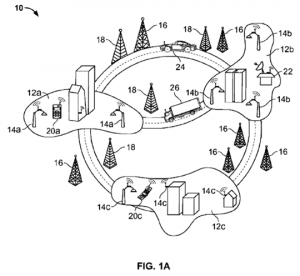
Google and Facebook lead group seeking stricter guidelines for tech patents
As the US Patent and Trademark Office mulls the validity of Apple’s multi-touch patent, a group of tech companies led by Google and Facebook is asking that the courts reconsider granting such rights for vague tech concepts. Their plea was submitted as an amicus curiae brief as part of a current dispute between CLS and Alice in which CLS argues that Alice’s patents for computer-based financial intermediation are too vague.
The case is in the appeals process after an initial ruling landed in favor of Alice and the company’s portfolio of patents. Now Google and company hope to use their weight to sway a decision by backing CLS’s claims with documents that detail a lack of innovation in patents that fail to describe specific implementations of technical ideas.
Here is the general argument set forth by Google, Facebook and a group consisting of Zynga, Dell, Intuit, Homeaway, Rackspace, and Red Hat:
“Many computer-related patent claims just describe an abstract idea at a high level of generality and say to perform it on a computer or over the Internet. Such barebones claims grant exclusive rights over the abstract idea itself, with no limit on how the idea is implemented. Granting patent protection for such claims would impair, not promote, innovation by conferring exclusive rights on those who have not meaningfully innovated, and thereby penalizing those that do later innovate by blocking or taxing their applications of the abstract idea.”
We’d say that just about hits the nail on the head when it comes to the bountiful number of tech-related lawsuits involving patent litigation. It would seem that the US patent system has not kept pace with the very technologies it was designed to protect, and in turn numerous companies are taking advantage by patenting vague concepts and ideas. The ultimate result is the stifling of innovation, not the encouragement of it.
If the court sides with CLS with consideration to the brief submitted by Google and its cohorts, it would set a precedent for judges sitting on other patent-related trials. Don’t be surprised if we see a huge shakeup in the patent system should we continue down this road, though any meaningful changes likely won’t come for several years.
[via TechCrunch]